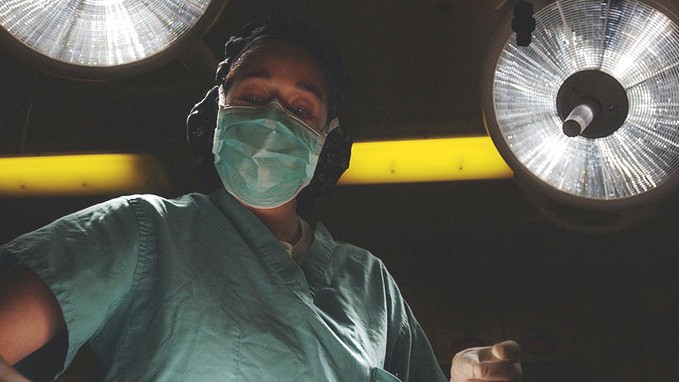A hospital comprises an extensive system with numerous dynamic elements, including patients, healthcare providers, and medical equipment. Managing and ensuring the readiness of the staff and tools for patient care within this intricate system is challenging.
Sadly, it’s a standard that hospitals don’t always meet. Between 44,000 and 98,000 people die every year worldwide due to medical errors that could have been prevented. These include administering the wrong medication and losing track of high-risk patients.
More than ever, hospitals are investing in radio-frequency identification (RFID) technology to prevent these errors. RFID technology in healthcare can be used to track patients, hospital staff, medicine, and equipment, reducing the chance of errors and delivering a better patient care experience.
RFID in Healthcare
Article Guide
RFID technology uses electromagnetic fields to identify and track tags attached to objects or people. At its simplest, an RFID system comprises a tiny radio transponder, receiver, and transmitter.
When the RFID tag receives an interrogation pulse from a nearby reader device, the tag transmits a response back. Essentially, the reader device asks the tag, “Are you X?” and the tag responds, “Yes, I’m X” or “No, I’m Y.”
RFID tags come in two varieties: passive and active. Passive tags have no internal power source and rely on the energy transmitted from the RFID scanner to send a message back.
Passive tags are less expensive and lighter than active tags, but they have a lower signal range and cannot transmit data in real time.
Active tags come equipped with internal batteries and can continuously send signals to the nearest RFID reader.
The beauty of RFID technology in healthcare is how simple and low-profile it is. Advancements in radio technology mean that RFID tags are incredibly small and lightweight, with most being the size of a garment button or name tag. There are even tags that can be woven into fabric or attached to objects via stickers.
This keeps the technology unobtrusive, ensuring it won’t disrupt a healthcare provider’s workflow or become annoying for a patient if they wear it on their body.
How RFID is Used in Healthcare
RFID technology’s flexibility means it can be used in multiple applications. Some of these applications include:
- Patient tracking and identification. By wearing a wristband or tag on their clothing, patients can be tracked and identified wherever they go in the hospital. This is especially helpful for high-risk or mentally-impaired patients, such as seniors with Alzheimer’s. Pratt Regional Medical Center in Pratt, Kentucky, also uses such a system to track newborn babies and ensure infants aren’t accidentally switched at birth.
- Asset tracking and management. An estimated 10 to 20% of all mobile hospital assets (such as computers or tablets) are lost or stolen, with an average cost of nearly $3,000 per missing item. RFID tags can be attached to assets and equipment to track their real-time location, preventing them from being misplaced or stolen.
- Medication management. Giving the wrong medication to patients is a serious concern for providers. Medication bottles can have attached tags to prevent this, which an RFID reader and medical computer must scan before being administered. The computer will then refer to the patient’s electronic health record (EHR) and check if that bottle contains the correct medicine for that patient.
- Security access. Data security and privacy are massive concerns for the healthcare sector, with healthcare groups required by law to control who accesses patient EHRs. Groups can accomplish this by using medical computers with RFID readers and issuing tags to their staff. The only way to access the computer is by scanning their tag, thus verifying their identity.
- Inventory management. By attaching RFID tags to consumable medical equipment such as bandages or blood bags, a hospital can track how much of a particular asset is being used and order replacements as needed.
Advantages of RFID in Healthcare
Hospitals can reap many benefits by implementing RFID in their daily operations.
- Improved accuracy and efficiency: Providers can prevent incorrect administrations by cross-checking RFID-tagged medication with a patient’s EHR. RFID tech also makes tracking inventory levels and placing resupply orders easier, making supply chain management easier.
- Enhanced patient safety: Besides preventing incorrect medication administration, RFID tags make real-time tracking and monitoring patients easier for hospital staff. This helps ensure patients don’t wander off or enter restricted hospital areas.
- Cost savings: Hospitals can save massive amounts of money by cutting down on inventory waste and replacing stolen or lost assets. These savings can be reinvested into purchasing new equipment, staff payroll, or expanding operations.
- Compliance with regulations: The Health Insurance Portability and Accountability Act (HIPAA) requires that healthcare groups control who can access patients’ private health data. By implementing RFID-based access control, these groups can regulate who, where, and when this data is accessed.
Considerations and Concerns
As with any new technology, RFID in healthcare comes with questions concerning its safety and reliability. Protecting patient information is a high priority for healthcare groups, especially considering how frequently cybercriminals target the sector. A common concern is that RFID tech could be used to breach a healthcare group’s security and compromise patient health data.
The answer to those concerns is that while data breaches are possible, cybercriminals have other, more accessible methods of executing them than attaining RFID tags or readers. Most cyber-attacks begin with phishing attempts targeting healthcare providers in an attempt to steal their login credentials.
Accessing RFID technology requires physical interaction with the tags and readers, which most cybercriminals don’t have the time or opportunity to do. Additionally, RFID technology’s security can be enhanced using medical-grade computers with security features that scan tags and prevent intrusions.
Another challenge for RFID in healthcare is integrating it into pre-existing systems and operations. Many hospitals rely on legacy equipment that is still perfectly functional but uses connector ports that are no longer popularly supported.
Upgrading to modern computers to take advantage of RFID technology would inevitably mean abandoning older pieces of equipment and requiring expensive replacements. The best way to address this issue is to utilize medical computers that integrate both legacy and modern ports so that providers can use old and new equipment with them.
Future Trends for RFID Tech in Healthcare
Due to RFID technology’s novelty, developers are constantly exploring innovative methods to incorporate it with other technological components. Two specific areas where RFID seamlessly integrates are its combination with the Internet of Things (IoT) and artificial intelligence (AI).
RFID and IoT
Many RFID applications are designed to take advantage of IoT. Under it, electronic devices connected via the internet communicate with each other seamlessly without requiring a human intermediary. For example, suppose a pharmacy’s server detects that it is running low on a particular medication (which it knows by tracking RFID-labeled bottles).
In that case, it can immediately order replacements without requiring a human to authorize the transaction. This lets caregivers focus on treating patients rather than bureaucratic or administrative tasks.
RFID and AI
RFID is a natural fit for combining with AI, giving AI “eyes” in the real world. AI programs require incoming data to process before they can offer solutions, and RFID tags and readers are the perfect way to gather that data.
For instance, an AI can use tags to track consumable equipment rates and predict when replacements must be ordered, letting hospitals prepare for crisis events faster. It can also take patient and personnel movement data throughout the hospital to identify high-traffic areas, enabling staff to help plan crowd control or emergency evacuation routes.
Control Your Data With Cybernet
Hospitals can deliver better patient outcomes and save money by implementing RFID technology in healthcare. From medication management to security access, virtually all hospital functions can be improved by RFID’s greater intelligence and control.
If your hospital or healthcare group is interested in integrating RFID-capable medical computers into your operations, contact the team at Cybernet Manufacturing. Our computers and tablets can be customized with RFID readers, giving you expanded capabilities and better control over who can access your patients’ data.
Join the conversation and connect with us on this and other relevant topics – Follow us on Facebook, X, and LinkedIn.
Why OEM Medical Device Manufacturers Are Utilizing Rugged Tablets to Improve Medical Grade Technology
January 14, 2016
Healthcare is a demanding field and relies heavily upon utilizing the best, most up-to-date equipment to help doctors and nurses provide the highest quality medical services. As advances in how procedures are…
0 Comments3 Minutes
You Can't
Learn from a Pop-up
But we can deliver knowledge to your inbox!
We dive deep in the industry looking for new trends, technology, news, and updates. We're happy to share them with you.
Knowledge, News, and Industry Updates Right in Your Inbox



